‘Chris Whitty should not be subject to ignorant public attacks by politicians’
Your digest of analysis from the British and international press
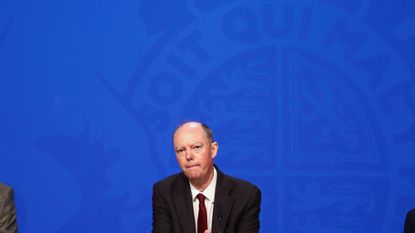
- 1. Belittling experts like Chris Whitty will not solve anything
- 2. Boris Johnson’s by-election defeat was self-inflicted and Tory MPs know it
- 3. The truth about my sister, Ghislaine Maxwell
- 4. Teaching your 10-year-old about porn isn’t as awkward as them learning about it from someone else
- 5. OK! It’s time to take UFOs seriously
1. Belittling experts like Chris Whitty will not solve anything
Jawad Iqbal in The Times
on ‘an almost impossible job’
Chris Whitty, England’s chief medical officer, has “an almost impossible job, straining every sinew of his knowledge and experience to help guide the country through the pandemic”, writes Jawad Iqbal in The Times. “That job is made even harder, thankless even, when he is subject to ignorant public attacks by politicians.” Citing the recent criticism of Whitty by Joy Morrissey, the Tory MP for Beaconsfield, who claimed he is turning the UK into a “public health socialist state”, Iqbal describes attacks on Whitty as “deluded and nonsensical”. The government adviser has been “scrupulously clear that it is ministers who make and decide policy”, but despite that, “verbal abuse, including savage attacks on their good faith, even death threats, are becoming commonplace”. This “belittling of expertise, scientific or otherwise, is stupid and counterproductive”, he adds. “Far too many politicians are addicted to sly digs about the country having had enough of experts”. But “if anything, what this pandemic has demonstrated is that real expertise and knowledge is more vital than ever”.
Subscribe to The Week
Escape your echo chamber. Get the facts behind the news, plus analysis from multiple perspectives.

Sign up for The Week's Free Newsletters
From our morning news briefing to a weekly Good News Newsletter, get the best of The Week delivered directly to your inbox.
From our morning news briefing to a weekly Good News Newsletter, get the best of The Week delivered directly to your inbox.
2. Boris Johnson’s by-election defeat was self-inflicted and Tory MPs know it
John Rentoul in The Independent
on a historic loss
The Conservatives’ defeat in the North Shropshire by-election is “mostly Boris Johnson’s fault”, writes John Rentoul in The Independent. It was the prime minister who “ensured that the by-election was triggered in the worst circumstances, by trying to save Owen Paterson, the constituency’s MP, from his punishment for breaking the ban on paid lobbying”, making the vote “a referendum on the prime minister’s own ethical standards”. Then the Downing Street party revelations followed, “an example of apparent double standards that all journalists and canvassers said came up again and again on the doorsteps”. Following the Tory defeat, the “big question” is “how much this by-election defeat feeds the agitation by a small number of Tory MPs to launch a vote of no confidence in Johnson’s leadership”. Most will know “the effect of forcing a vote on Johnson’s leadership now would be to ensure that he won it, while advertising the Tory party’s uncertainty, unhappiness and division”, he adds. So we will instead “hear a lot of nonsense about how the prime minister needs to get a grip, sort out his operation, undergo a personality change and listen to different and better advisers”.
3. The truth about my sister, Ghislaine Maxwell
Ian Maxwell in The Spectator
on mainstream misrepresentation
“The mainstream media’s pronunciation of my sister’s name has been about as accurate as their coverage of her,” writes Ian Maxwell, brother of Ghislaine, in The Spectator. “No, it’s not ‘Jizlaine’, it’s ‘Giilen’.” As his sister’s trial for sex trafficking continues, Maxwell writes that she has endured “vile conditions” in jail, including “rats”, “poor sanitation” and “being woken every 15 minutes with a torch shone in her eyes”. While saying that the Metropolitan Detention Centre is “not Auschwitz”, he writes that it is an “evil place” that has “weakened, drained and hollowed out” his sister, who he says is “suffering an abominable abuse of her human rights”. He says Ghislaine was arrested because of the authorities’ “shame and fury” at “losing Jeffrey Epstein in federal custody”. “We all have intense sympathy for those who are victims of abuse,” he adds, but Ghislaine has been “loudly maligned”. Turning to media reports that the prosecution has “fumbled its case”, he instead asks whether the government “has simply not had the evidence” to win.
4. Teaching your 10-year-old about porn isn’t as awkward as them learning about it from someone else
Sophie McBain in The New Statesman
on supportive chats
“One of the biggest arguments in favour of speaking to your young children about sex, sexual harassment and porn,” writes Sophie McBain in The New Statesman, is to ask yourself a simple question: “Who else would you prefer they hear it from?” Given that teenagers and even primary-age children are “routinely exposed to online porn” via social media and messaging apps, the need for awkward conversations is becoming more necessary. “Many parents were raised on the idea that it is weird to talk to children about sex, and that these conversations will be excruciating,” she says, adding that “the awfulness of parental sex talks is a long-running joke”. But McBain took the plunge after research found that young people “actually want their parents to broach difficult topics such as sexual harassment and porn”. Parents should consider “whose awkwardness they would prefer to tolerate”, she adds, theirs or “that of their child, left to navigate the confusing, sometimes harmful, landscape of sex and consent with little guidance or support”.
5. OK! It’s time to take UFOs seriously
Dillon Guthrie in the Los Angeles Times
on fringe theories
“Of all the year’s political drama, the most surprising may be the US government’s actions on unidentified aerial phenomena, or UAPs – better known as UFOs,” writes Dillon Guthrie in the Los Angeles Times. The lawyer, who served as an adviser on the Senate Committee on Foreign Relations, recalls when the Pentagon and the director of national intelligence delivered an “astonishing” report to Congress, recalling incidents such as one involving a “40-foot white object resembling a Tic Tac mint” off the California coast. When Navy pilots approached, the Tic Tac “sped instantly away, vanishing”. The issue is becoming more serious, with a new office to study UAPs being established, along with unclassified reports on UAPs delivered to Congress each year. This has “legitimized the long-ridiculed topic of UAPs”, Dillon adds. Now legislators “need to make sure the new office does not become shrouded in secrecy”.
Create an account with the same email registered to your subscription to unlock access.
Sign up for Today's Best Articles in your inbox
A free daily email with the biggest news stories of the day – and the best features from TheWeek.com
-
 Who actually needs life insurance?
Who actually needs life insurance?The Explainer If you have kids or are worried about passing on debt, the added security may be worth it
By Becca Stanek, The Week US Published
-
 Sexual wellness trends to know, from products and therapies to retreats and hotels
Sexual wellness trends to know, from products and therapies to retreats and hotelsThe Week Recommends Talking about pleasure and sexual health is becoming less taboo
By Theara Coleman, The Week US Published
-
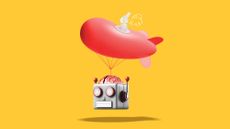 Is the AI bubble deflating?
Is the AI bubble deflating?Today's Big Question Growing skepticism and high costs prompt reconsideration
By Joel Mathis, The Week US Published
-
 The tricky science behind reviving ‘zombie viruses’
The tricky science behind reviving ‘zombie viruses’feature 48,500-year-old pathogen poses no risk to humans, but scientists hope to learn more about impact of melting permafrost
By The Week Staff Published
-
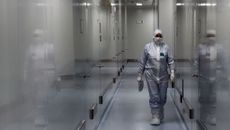 The Week Unwrapped: Immunity, Tunisia and Big Brother
The Week Unwrapped: Immunity, Tunisia and Big Brotherpodcast Will a drug called Evusheld cut Covid deaths still further? Is the Arab Spring over? And are we ready for the return of reality TV?
By The Week Staff Published
-
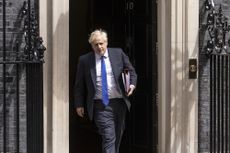 ‘The UK’s malaise will not end with the Prime Minister’s exit’
‘The UK’s malaise will not end with the Prime Minister’s exit’Instant Opinion Your digest of analysis from the British and international press
By The best columns Published
-
 ‘Police tactics are not getting worse, they are simply being filmed’
‘Police tactics are not getting worse, they are simply being filmed’Instant Opinion Your digest of analysis from the British and international press
By The best columns Published
-
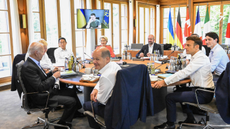 ‘G7 leaders missed a golden opportunity’
‘G7 leaders missed a golden opportunity’Instant Opinion Your digest of analysis from the British and international press
By The best columns Published
-
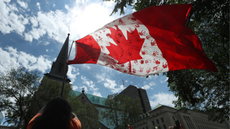 ‘It takes some soul searching to celebrate Canada Day’
‘It takes some soul searching to celebrate Canada Day’Instant Opinion Your digest of analysis from the British and international press
By The best columns Published
-
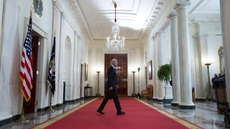 ‘Breakthrough on abortion rights could be there if Biden reaches for it’
‘Breakthrough on abortion rights could be there if Biden reaches for it’Instant Opinion Your digest of analysis from the British and international press
By The best columns Published
-
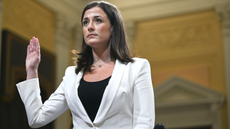 ‘If only Mark Meadows had even half Cassidy Hutchinson’s courage’
‘If only Mark Meadows had even half Cassidy Hutchinson’s courage’Instant Opinion Your digest of analysis from the British and international press
By The best columns Published